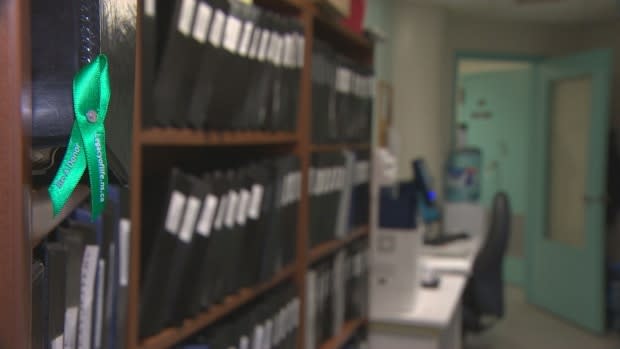Family refusal a significant hurdle in N.S. organ donations, says study
Doctors in Nova Scotia have discovered many families are refusing to allow a loved one in a traumatic situation to donate their organs, even if the patient has signed their donation card.
Dr. Rob Green, the provincial medical director for Nova Scotia's trauma program, worked on three studies looking at trauma patients and donation rates between 2009 and 2016. He looked at patients who were identified as potential donors but didn't donate. He said he was shocked to discover that nearly 50 per cent — 28 out of 60 cases — were because the family refused to go forward.
"I didn't expect that at all," said Green. "Some of these patients signed their driver's licence, saying they wanted to be an organ donor, and their family did not respect their wishes."
The research didn't determine why the families said no.
Green has sat down with families in that situation and said they're making difficult decisions in real time.
"On a personal level, I understand where families are coming from. They're overwhelmed with grief. They're not expecting their loved one to have a trauma," he said.

Nova Scotia is set to become the first province to switch to an opt-out donation law later this year. This is leading Nova Scotia's organ donation program, Legacy of Life, to change how staff who work with families in traumatic circumstances are trained. They'll also be ramping up public education in the coming months.
"I think we can do a better job and I think that's a big lesson learned for Legacy of Life, that it is an issue," said Green.
While Nova Scotia once led the country in donation rates, it has recently slipped to the middle of the pack, said Dr. Stephen Beed, Legacy of Life's medical director.
"We do know that when trained people are part of the conversation, consent rates improve," he said. "We have not really been able to increase our donor numbers much. But other provinces have made some impressive gains."
When the new law is enacted, if someone is identified as a potential donor, their consent is presumed unless the person has opted out in advance, or a family member says no.

Beed said there's still a significant amount of misinformation about the new law.
"The idea that this is Big Brother telling people what's going to happen to their bodies is just not true," he said.
The law won't apply to minors or those who lack the capacity to understand the concept. Beed also points out that very few people end up in a situation where they could potentially donate.
"Whatever decision they make, we will respect," he said of the new law. "But we'd like to make sure they're making the decision based on facts rather than misconceptions."
What donors can do
Beed said they've done surveys that show the vast majority of Nova Scotians support donation and the new law.
"Who's to say that if you're healthy today, you're not the one that's going to need that organ in six months?" he said. "We know that there's about seven times a higher likelihood that you are going to need a transplant than it is that you're going to be a donor."
Both Green and Beed want more families to talk openly about their wishes as much as possible. Green said if they make it clear in advance, it helps a family cope during an emotional time.
MORE TOP STORIES


